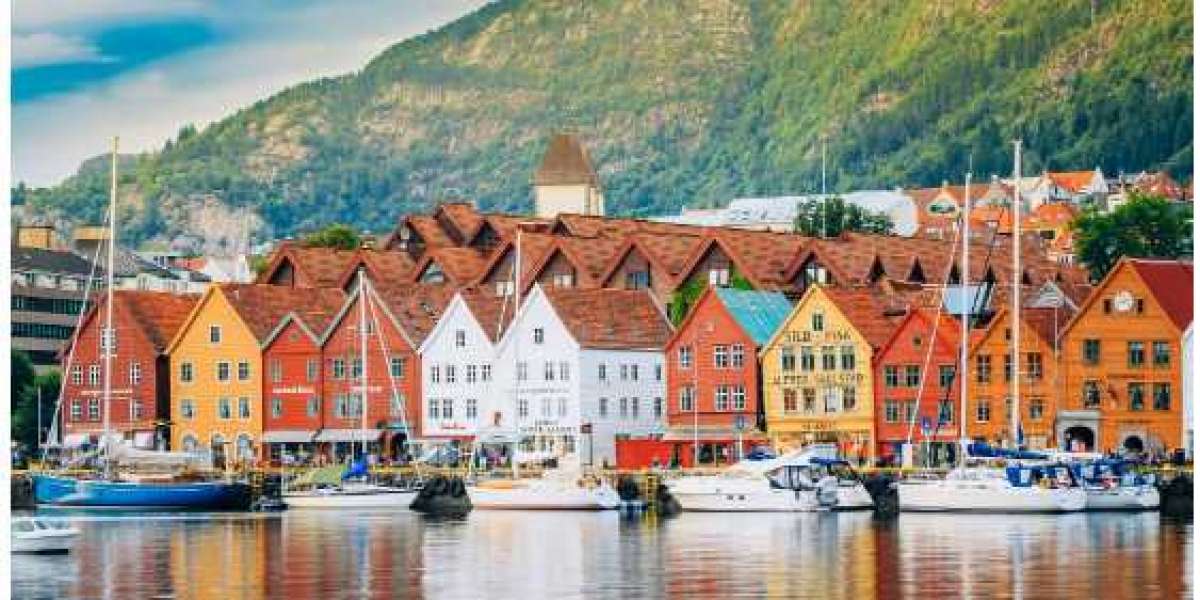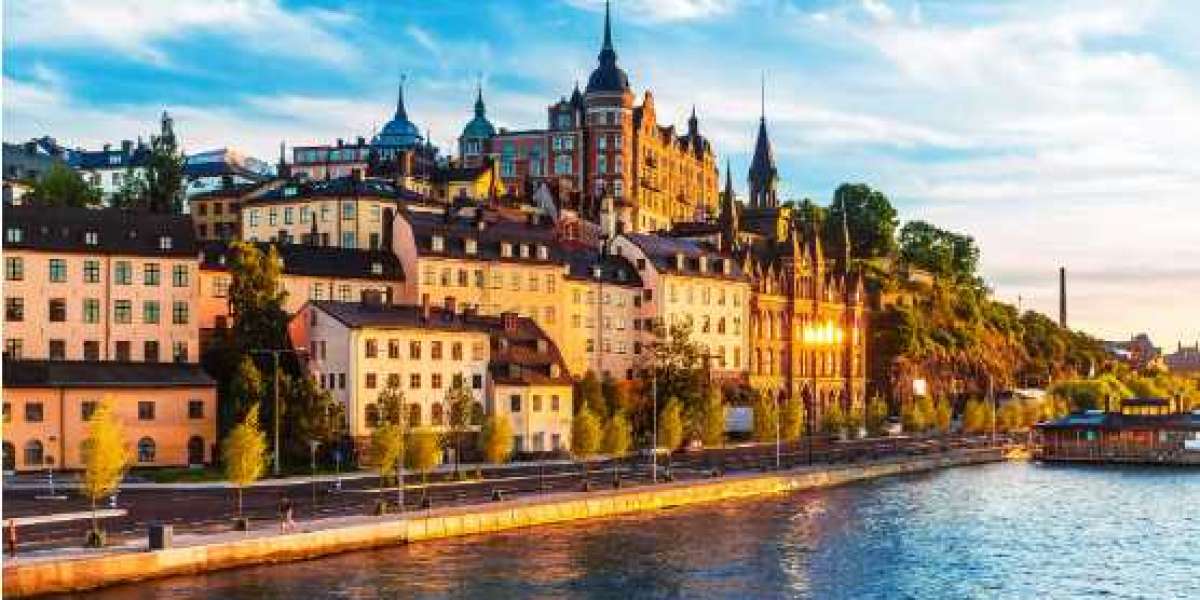The majority of the country's population can be found in the south, in and around the capital city of Oslo as well as other bustling urban hubs such as Berge and Trondheim. Norway is a country in Scandinavia that has just over five million people living in it.
Although Norway's economy is thriving and the unemployment rate is low, it can be difficult for foreign workers to find work in the country. Learn Norwegian to improve your chances of finding work in that country. Even though English is the predominant language, many businesses and institutions still operate with the local tongue. Learning Norwegian will not only help you adjust to your new location, but it will also open up a number of doors for you professionally and personally.
In addition to the significance of networking, it is vital to note that job openings are frequently publicized through word of mouth and can be won by knowing the appropriate people. Working during the summer, on a temporary basis, or even just part time is a fantastic way to build contacts and broaden your professional network.
Norway is a country of great natural beauty, which you are able to enjoy without paying any additional cost; however, the cost of living in Norway is relatively high. Participate in activities such as skiing, cycling, and hiking to fully embrace the culture of the great outdoors.
Jobs in Norway
The unemployment rate in Norway is 3.8%, and the economy is strong and stable. Natural resources abound in the nation, including petroleum and natural gas, fish, timber, and a variety of minerals.
The provision of services accounts for a significant portion of Norway's GDP, and the country's principal industries are as follows:
- agriculture
- chemicals
- fishing
- food processing
- metals
- mining
- paper products
- petroleum and gas
- shipping
- textiles.
Large companies include:
- Aker Solutions
- ExxonMobil
- NorgesGruppen
- Norsk Hydro
- Orkla
- Statoil
- Telenor Group
- Total EP Norge
- Yara International.
POPULAR GRADUATE JOBS
- Construction
- Healthcare
- IT and communications
- Oil and gas
- Tourism
Even though Norwegian employers frequently hesitate to hire international workers because they would rather provide employment opportunities to qualified Norwegian nationals, opportunities do exist for skilled international workers who are willing to relocate to Norway so long as they know where to look for them.
Check for available positions at:
Shortage occupations
Foreign workers may have more luck securing a job if their skills are in demand. Workers are need in the following sectors:
- building and construction
- engineering
- healthcare and nursing
- hospitality
- IT
- manufacturing
- tourism.

How to Obtain Employment in Norway
It is imperative that you become fluent in Norwegian if you wish to integrate successfully into Norwegian society and to improve your opportunities for obtaining employment.
Most jobs are advertised on the internet and many newspapers, including Aftenposten, Dagbladet, and The Norway Post also advertise opportunities.
The use of contacts and networking can frequently result in positive outcomes, and applications based on speculation are encouraged.
The process of applying for jobs in Norway is very comparable to the one used in the United Kingdom. Before you go in for an interview, you will need to hand in a curriculum vitae (CV) that is two pages long and a cover letter, to which you will attach copies of your references and qualifications. Unless otherwise specified, each application, including the cover letter and CV, should be written in Norwegian. Unless otherwise specified, each application should be tailored to the role.
It is imperative that you arrive on time for any interviews you may have, as punctuality is something that the Norwegians take great pride in.
Summer jobs
Work that is seasonal or on an as-needed basis is readily available for international workers in a variety of fields, including the following:
- agriculture and horticulture
- fish processing
- forestry
- hospitality
- tourism.
You could also try your hand at janitorial work, fruit picking, working as an au pair, or finding a job in a factory or warehouse.
If a worker intends to perform work that can only be done during a specific period of the year, they may be eligible for a unique type of residence permit. This type of work is known as seasonal labor.
Opportunities for volunteering, gap years, summer jobs, and seasonal work can also be found at the following places:
Teaching jobs
As a result of the high number of people who already speak English, opportunities to teach English to speakers of other languages may be limited to larger cities such as Oslo and Bergen.
Despite this, there are still opportunities available. Employment opportunities can be found in a variety of settings, including international schools, private and public schools, as well as language institutions.
You do not need to be able to speak Norwegian perfectly in order to get a job there, but having a good working knowledge of the language, along with relevant experience, a TEFL certification, and a degree, will help you get hired.
You can look through a list of language schools on the ESL Base website.
Internships
Internships and other forms of work experience can be an excellent opportunity for foreign workers to gain experience relevant to the Norwegian labor market before making the move permanently. The majority of available positions will be found in large companies located in the south of the country, specifically in cities like Oslo, Bergen, and Trondheim.
Students can find internships and summer work placements through the following resources:
Norwegian visas
In spite of the fact that it is not a member of the European Union (EU), Norway is a participant in the European Economic Area (EEA).
On January 1, 2021, due to the United Kingdom's departure from the European Union, new regulations came into effect regarding travel by citizens of the United Kingdom to countries within the EU. You are exempt from needing a visa to visit any of the countries that are part of the Schengen area (which includes Norway) for up to ninety days within every 180-day period. You are required to submit an application for a residence permit if, however, you intend to work in Norway or remain there for more than three months.
There are different types of permit depending on your circumstances and the type of work you will be doing, so check with the Norwegian Directorate of Immigration (UDI) before applying.
For instance, if you are a citizen of the United Kingdom and you want to go to Norway in search of work, you won't be able to do so unless you can demonstrate that you are a skilled worker. Everyone else who is looking for work in the country is required to wait until they have been offered a position and have been granted a residence permit before moving there.
A skilled worker's work permit, an au pair's work permit, and a seasonal worker's work permit are some of the other types of work permits. Research what kinds of documentation are necessary for the type of permit you intend to apply for in advance so that you are prepared with the appropriate materials. In most cases, applications must be submitted to the Norwegian Embassy in the applicant's home country.
It is possible for EU and EEA citizens to live and work in Norway without the need for a visa for up to three months before being required to register with the local authorities. Those who have been looking for work for a period of six months but have been unsuccessful must leave the country before beginning the process again. After five years of residency in the country, EU and EEA citizens are automatically eligible for permanent residency.

Language requirements
There are a significant number of well-educated Norwegians who are fluent in English, and there are a number of large businesses in Norway that use English as their primary language of business. However, in order to be considered for most jobs, candidates must demonstrate an advanced level of fluency in Norwegian. Regardless, gaining this knowledge will significantly broaden your employment opportunities and possibly lead to higher salaries. There are Norwegian language schools located in the United Kingdom.
How to explain your qualifications to employers
UK qualifications are generally recognised and comparable to their Norwegian counterparts due to the Bologna process, but check with the employer before applying. Certain professions will require you to become authorised; see the Norwegian Agency for Quality Assurance in Education (NOKUT) or ENIC-NARIC for more information.
What it's like to work in Norway
You can expect to put in a typical 40-hour workweek, with working hours typically ranging from 8:00 am to 4:00 pm, Monday through Friday. The standard rate of pay for overtime is time and a half.
You are eligible for a minimum of 25 days of paid time off during the course of each year. The Norwegian government observes thirteen different holidays annually.
The work environment is characterized by a flat structure in which employees are empowered to work autonomously, and decisions are typically made democratically. This contributes to a culture of collaboration and innovation. In most cases, business casual attire is acceptable.
Even though there is no such thing as a national minimum wage, some industries, like the hospitality industry, the maritime industry, agriculture, and construction all have their own minimum salaries.
Find out more
- Discover what it's like to study in Norway.




Alphonsus Odumu 5 w
Norway